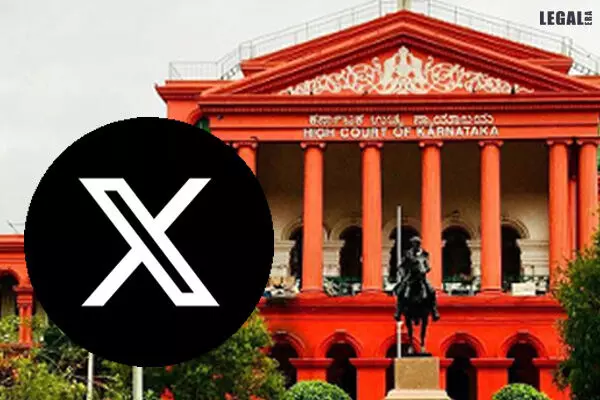- Home
- News
- Articles+
- Aerospace
- AI
- Agriculture
- Alternate Dispute Resolution
- Arbitration & Mediation
- Banking and Finance
- Bankruptcy
- Book Review
- Bribery & Corruption
- Commercial Litigation
- Competition Law
- Conference Reports
- Consumer Products
- Contract
- Corporate Governance
- Corporate Law
- Covid-19
- Cryptocurrency
- Cybersecurity
- Data Protection
- Defence
- Digital Economy
- E-commerce
- Employment Law
- Energy and Natural Resources
- Entertainment and Sports Law
- Environmental Law
- ESG
- FDI
- Food and Beverage
- Gaming
- Health Care
- IBC Diaries
- In Focus
- Inclusion & Diversity
- Insurance Law
- Intellectual Property
- International Law
- IP & Tech Era
- Know the Law
- Labour Laws
- Law & Policy and Regulation
- Litigation
- Litigation Funding
- Manufacturing
- Mergers & Acquisitions
- NFTs
- Privacy
- Private Equity
- Project Finance
- Real Estate
- Risk and Compliance
- Student Corner
- Take On Board
- Tax
- Technology Media and Telecom
- Tributes
- Viewpoint
- Zoom In
- Law Firms
- In-House
- Rankings
- E-Magazine
- Legal Era TV
- Events
- News
- Articles
- Aerospace
- AI
- Agriculture
- Alternate Dispute Resolution
- Arbitration & Mediation
- Banking and Finance
- Bankruptcy
- Book Review
- Bribery & Corruption
- Commercial Litigation
- Competition Law
- Conference Reports
- Consumer Products
- Contract
- Corporate Governance
- Corporate Law
- Covid-19
- Cryptocurrency
- Cybersecurity
- Data Protection
- Defence
- Digital Economy
- E-commerce
- Employment Law
- Energy and Natural Resources
- Entertainment and Sports Law
- Environmental Law
- ESG
- FDI
- Food and Beverage
- Gaming
- Health Care
- IBC Diaries
- In Focus
- Inclusion & Diversity
- Insurance Law
- Intellectual Property
- International Law
- IP & Tech Era
- Know the Law
- Labour Laws
- Law & Policy and Regulation
- Litigation
- Litigation Funding
- Manufacturing
- Mergers & Acquisitions
- NFTs
- Privacy
- Private Equity
- Project Finance
- Real Estate
- Risk and Compliance
- Student Corner
- Take On Board
- Tax
- Technology Media and Telecom
- Tributes
- Viewpoint
- Zoom In
- Law Firms
- In-House
- Rankings
- E-Magazine
- Legal Era TV
- Events
Karnataka High Court Admits X Corp's Appeal after Centre Refuses to Reconsider Users’ Account Blocking Orders

Karnataka High Court Admits X Corp's Appeal after Centre Refuses to Reconsider Users’ Account Blocking Orders
The case has been scheduled for a hearing on 9 November
The Karnataka High Court has admitted the appeal of X Corp (formerly Twitter) against the single judge’s dismissal of its challenge to the account-blocking orders issued by the Government of India.
A Division Bench of Justice G Narendar and Justice Vijaykumar A Patil admitted the appeal after the counsel for the Ministry of Electronics & IT informed the court that there were no changes in circumstances to reconsider the blocking orders.
On 20 September, the court had orally asked the Union Government to respond whether it would re-consider the blocking orders passed by it directing X Corp to block the accounts of certain users.
The Judges implied considering the issue of whether the reasons for the ministry’s orders were to be communicated to the platform and account users. It stated that recording the reasons was mandatory. However, the issue for deliberation was whether such orders were to be communicated or not.
The bench questioned, “So recognizing that in the Shreya Singhal case, the Supreme Court has said it (blocking order) is open for challenge; when the court has held it is open for challenge, how can ld single judge hold that it is not required to be communicated?”
The single judge had held that Twitter was not a ‘novice’ who couldn't understand the objectionability of the tweets in question. It held that if processual fairness in the governmental action was exhibited otherwise, the infirmity of not communicating the reasons in a formal way, would not assume significance.
However, the division bench observed, "Let us assume the contents are of that nature, but a person can still challenge it. Once it is subject to judicial review, once his civil rights are impinged, communication of written order is required."
In its appeal, X Corp pleaded that if the single judge bench’s decision was upheld, the Union Government would be ‘emboldened’ to issue more blocking orders violating Section 69A of the Information Technology Act, 2000, the Blocking Rules, and the procedures and safeguards mandated by the Supreme Court in the Shreya Singhal case.
The company argued that the impugned order failed to follow the plain language of Section 69A(1) that reasons must be recorded in writing in a blocking order. It erroneously held that Section 69A (1) did not require blocking orders to contain reasons in writing. Moreover, the order's interpretation of Section 69A (1) led to the redundancy of the words, impermissible in law.
X Corp also opposed the imposition of exemplary costs and obtained an interim order of stay on a deposit of Rs.25 lakhs with the Registry.



